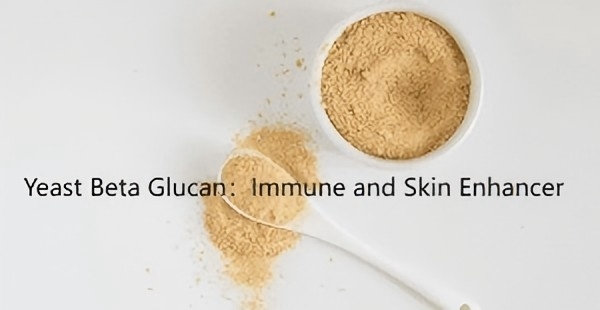Yeast Beta Glucan:Immune and Skin Enhancer

Yeast Beta Glucan is a biologically active polysaccharide extracted from the cell walls of *Saccharomyces cerevisiae*, commonly known as baker’s yeast. It has gained attention for its role in immune system modulation, skincare, and potential use in disease prevention. This natural compound interacts with immune cells, enhances barrier functions, and shows promise across health and cosmetic industries.
Biological Activity and Mechanism
Yeast Beta Glucan is a β-(1,3)/(1,6)-glucan, meaning its molecular structure contains glucose molecules linked through 1,3 and 1,6 glycosidic bonds. This specific configuration allows it to bind to receptors on macrophages, dendritic cells, and neutrophils, which are essential components of the innate immune system.
Immune System Activation
Upon ingestion or topical application, Beta Glucan is recognized by pattern recognition receptors such as Dectin-1 and CR3 on immune cells. This interaction triggers signaling cascades that lead to enhanced pathogen recognition, increased cytokine production, and improved phagocytic activity without overstimulating the immune response.
Systemic and Localized Effects
When consumed orally, Beta Glucan travels through Peyer’s patches in the small intestine and stimulates systemic immune modulation. When applied topically, it improves skin defense by promoting Langerhans cell function and increasing the production of antimicrobial peptides.
Applications in Functional Foods and Supplements
Due to its immune-enhancing potential, Yeast Beta Glucan is widely used in dietary supplements, especially those targeting seasonal immune support, respiratory health, and overall wellness. It is often included in capsules, powders, and chewable formulations.
Clinical Evidence in Immunity
Studies show that regular supplementation with Yeast Beta Glucan may reduce the frequency and severity of upper respiratory tract infections. It also appears to reduce inflammation markers and support immune resilience during stress and physical exertion.
Use in Sports Nutrition
Athletes often experience temporary immune suppression after intense training. Supplementation with Yeast Beta Glucan has shown positive results in reducing exercise-induced immune depression, lowering sick days, and supporting recovery.
Topical Benefits for Skin Health
Yeast Beta Glucan is increasingly found in skincare products due to its hydrating, soothing, and wound-healing properties. It acts as a natural humectant and supports the skin’s defense mechanisms.
Barrier Function and Moisture Retention
It strengthens the skin barrier by enhancing lipid production and increasing water retention in the stratum corneum. This leads to softer, more resilient skin and a reduction in transepidermal water loss (TEWL).
Wound Healing and Anti-Aging
Beta Glucan accelerates tissue regeneration by stimulating keratinocyte and fibroblast activity. Its antioxidant properties help neutralize free radicals, reduce fine lines, and improve skin texture over time.
Safety, Dosage, and Quality Considerations
Yeast Beta Glucan is generally recognized as safe (GRAS) for use in food and cosmetics. However, its efficacy depends on source purity, molecular weight, solubility, and concentration.
Effective Doses and Bioavailability
For immune support, effective daily doses range from 250 to 500 mg. Water-soluble forms are often preferred for higher bioavailability. Manufacturers often standardize content to ensure consistent activity in clinical applications.
Allergenicity and Regulatory Status
Since it’s derived from yeast, individuals with yeast allergies should consult healthcare professionals before use. In the U.S., Europe, and many parts of Asia, it is legally permitted as a novel food or cosmetic ingredient with specific labeling requirements.
Future Research and Innovations
Ongoing studies are exploring Beta Glucan’s potential role in oncology, vaccine adjuvants, and gut microbiota modulation. Innovations in encapsulation and delivery methods may further enhance its therapeutic benefits.
Nanotechnology and Encapsulation
Incorporating Beta Glucan into liposomes or nanoparticles can improve its stability and delivery efficiency. This has implications for pharmaceutical and cosmeceutical product development.
Combination with Other Bioactives
Synergistic blends with vitamins C, D, or zinc are being tested to enhance immune outcomes. Beta Glucan may also support probiotic growth in the gut, offering new opportunities in prebiotic product design.
